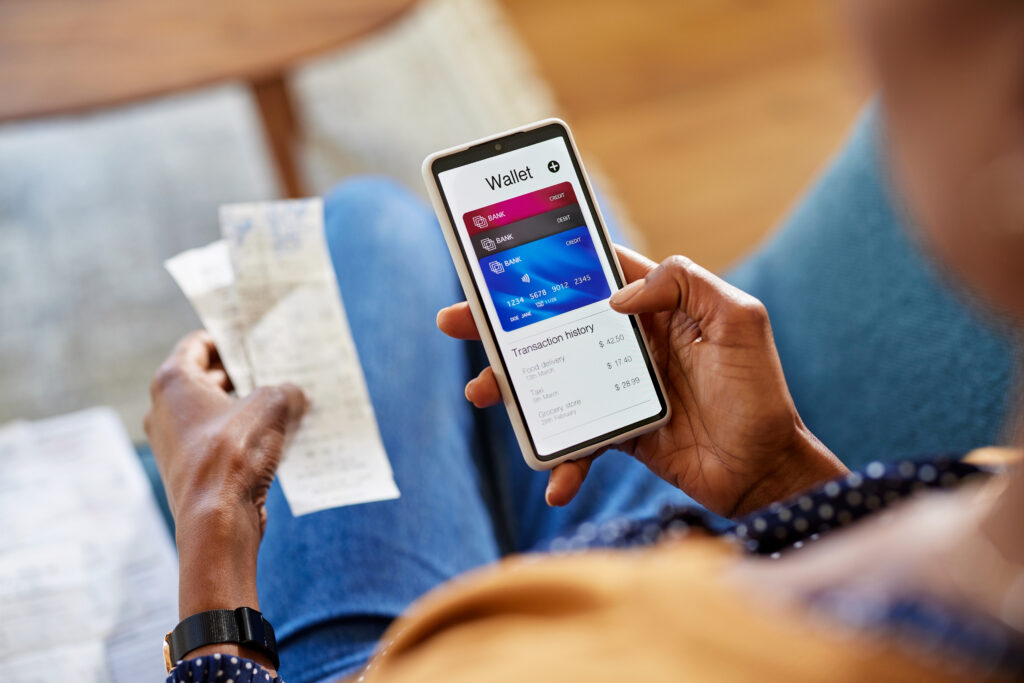Now that we all have our smartphones pretty much attached to us, and cash is so 5 years ago, digital wallets are rising in popularity. They’re convenient, secure, and versatile, and changing the way we manage money. But what exactly are digital wallets? Here’s how they work and what you should know about their benefits and risks.
What are digital wallets?
A digital wallet, also known as an e-wallet, is a software-based system that securely stores your payment information and passwords for various payment methods. These wallets allow users to make electronic transactions quickly and efficiently. They can be used through smartphones, tablets, wearables, and computers for both online and in-store purchases.
Some popular digital wallets are:
- Apple Pay
- Google Wallet
- Samsung Pay
- PayPal
- Venmo
Digital wallets can also store things like loyalty cards, gift cards, and even ID documents.
Benefits of digital wallets
1. Convenience
Digital wallets streamline the payment process by storing all your payment information in one place. No more fumbling through your physical wallet for the right card or worrying about carrying cash. You can make payments with a simple tap or scan.
2. Enhanced security
Digital wallets use advanced encryption and tokenization to protect your financial information. This means your actual card details are never revealed to merchants or websites, reducing the risk of fraud. Features like biometric authentication (fingerprint or facial recognition) add an extra layer of security.
3. Speed and efficiency
Digital payment transactions are processed faster than traditional card payments. This efficiency is good for both consumers and merchants, cutting wait times at checkout and speeding up the overall transaction.
4. Tracking and management
Digital wallets have features that help you track your spending and manage your finances. You can easily view transaction histories, set budgets, and receive notifications about your spending patterns, helping you stay on top of your financial health.
5. Integration with loyalty programs
Many digital wallets integrate with loyalty and rewards programs, automatically applying discounts or earning points when you make purchases. This seamless integration can help you save money and take advantage of special offers without the need to carry and keep track of a stack of cards.
Risks of digital wallets
1. Security vulnerabilities
While digital wallets are generally secure, they are not immune to hacking and cyber-attacks. If your device is compromised, there is a risk that your payment information could be accessed by unauthorized individuals. Definitely keep your device secure and use strong passwords or biometric authentication.
2. Technical issues
Digital wallets need internet connectivity. If you experience technical issues with your device or the payment system, it could disrupt your ability to make transactions. It’s always a good idea to have a backup payment method available.
3. Acceptance limitations
Not all merchants take digital wallet payments. While the number of accepting locations is growing, there are still places where you might need to use a traditional payment method. It’s important to check whether your preferred payment method is accepted before relying solely on a digital payment method.
4. Data privacy concerns
Using a digital wallet means sharing your payment and transaction data with the wallet provider. There may be risks in how this data is used and whether it’s shared with third parties. It’s essential to review the privacy policies of your provider to understand how your information is handled.
5. Dependency on devices
Digital wallets are tied to your electronic devices. If your device is lost, stolen, or damaged, you might lose access to your digital wallet until you can restore it on a new device. That can be really inconvenient, especially in emergencies.










